WOMEN WITH GRITT: Dr Shyamalar Gunatheesan On The Importance Of Empathy In Dermatology, The Art Of Timing Babies And The Female Mental Load
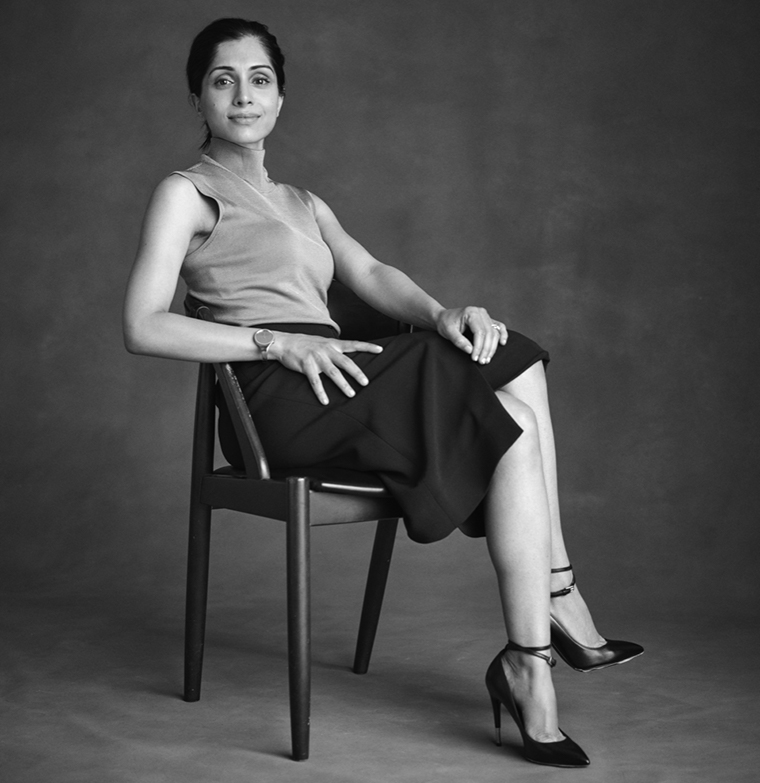
“Wanting to have kids and take time off was incredibly frowned upon. It wasn’t draconian, but it was strongly implied.”
Welcome to Women with GRITT: a series where we interview the resilient, hardworking women who have kicked in the glass ceiling and inspire us to do the same.

Picture this: it’s 5:15pm on a dreary Tuesday afternoon. Suddenly, a Zoom link pops up and one of the most highly sought after dermatologists in the game appears on the screen. It’s Dr Shyamalar Gunatheesan and she’s glowing.
Just quietly, Dr Gunatheesan looks at least 10 years younger than she actually is – so when this skin expert shares her wisdom with us, we’re listening. Working out of Fairfield Dermatology Clinic in Melbourne, the Malaysia-native is in high demand for a reason: dermatology is more than her nine to five, it’s her passion. Graduating with a Bachelor of Science and a Bachelor of Medicine and Surgery in 2005, Gunatheesan went on to do a year of genetic research at Harvard University. Impressive, right?
Since then, the mother of two has received a handful of prestigious awards – including the Adrian Johnson Memorial prize for the best publication in the Australasian Journal of Dermatology – and is also an Honorary Consultant at the Royal Melbourne Hospital.
Accolades aside, what makes Dr Gunatheesan stand out is her ability to make everyone feel seen and understood in her clinic. It’s a reputation she has built through a combination of empathy and honesty to help her clients achieve their skin goals.
In this interview, Dr Gunatheesan speaks to Gritty Pretty about growing up as an outsider, the thrill of solving a tricky skin situation, why she had to carefully time having children and the female mental load (otherwise known as remembering the fact her daughter only loves the Paw Patrol potty seat).
Thank you so much for speaking with us today Dr Shyamalar! We know you’re one of the best dermatologists in the country, but we want to know a bit more about your early life. Where did you grow up?
I grew up in Malaysia in a little border town called Johor Bahru which flanked Malaysia and Singapore. It wasn’t as rich as Singapore but it was the same demographic of people; a migrant community of Ethnic Malays, Chinese, Indians and Sri Lankans. But since I grew up so close to Singapore, I actually went to school there for all my life. It was a 30 minute bus ride across the causeway with the pineapples and pigs being trucked alongside me. So, in a way I’ve been an outsider for as long as I can remember.
That would have been quite challenging to feel like you didn’t necessarily belong in either place. You then moved to Melbourne to study medicine, how did you feel about that transition?
For one, when I came to Melbourne I was gobsmacked that I could literally crawl into a lecture in five minutes from my dorm. That was a luxury. But it was also just such a natural move for me because most people in Asia think of either Australia or the UK as good universities to study medicine so I was always kind of prepared for it. I also travelled a lot with my parents so I was used to meeting new people and living in new places so it was quite an easy transition, to be honest.
Once you’d completed your studies at the University of Melbourne you made the transition into being a practicing dermatologist. What would you say was the most challenging part?
Medicine is an apprenticeship, you learn by mimicking. So, despite having all the medical knowledge and studying really hard, nothing really prepares you for your first year out. You’re definitely thrown into the deep end. I think the biggest challenge was drawing on my emotional side more than I thought I would have to – you think it’s going to be all clinical but for something as personal as skin, being empathetic and understanding is so important. You just have to be interested, like really interested, and invested in your patients. That’s not to say you have to be a good samaritan because sometimes it is about telling someone what they don’t want to hear, especially when it comes to making lifestyle changes, but you do need to be considerate and speak to them in terms that they’re going to understand. There’s no point prescribing something to someone in a way they don’t understand because they won’t do it.
That’s great advice for everyone – dermatologist or not. On top of being empathetic, why do you think so many people trust you with their skin?
There’s a saying that it takes anyone about eight years to be a good dermatologist. This is because you learn all the different patterns and conditions and you get more confident in diagnosing it. I think people trust me because I genuinely care about how their skin affects everything in their lives. It goes beyond having a breakout or a rash – it affects people’s whole sense of self and confidence. So, helping people overcome the mental challenges by helping them fix their skin is what I think has helped me build my reputation.
I also think being a woman helps because I understand where female skin concerns are coming from – more often than not, I have those same concerns myself. So just relating to my clients on that personal level has set me apart. And I will never give up. It could take us two or three tries to get it right but I will always get that result.
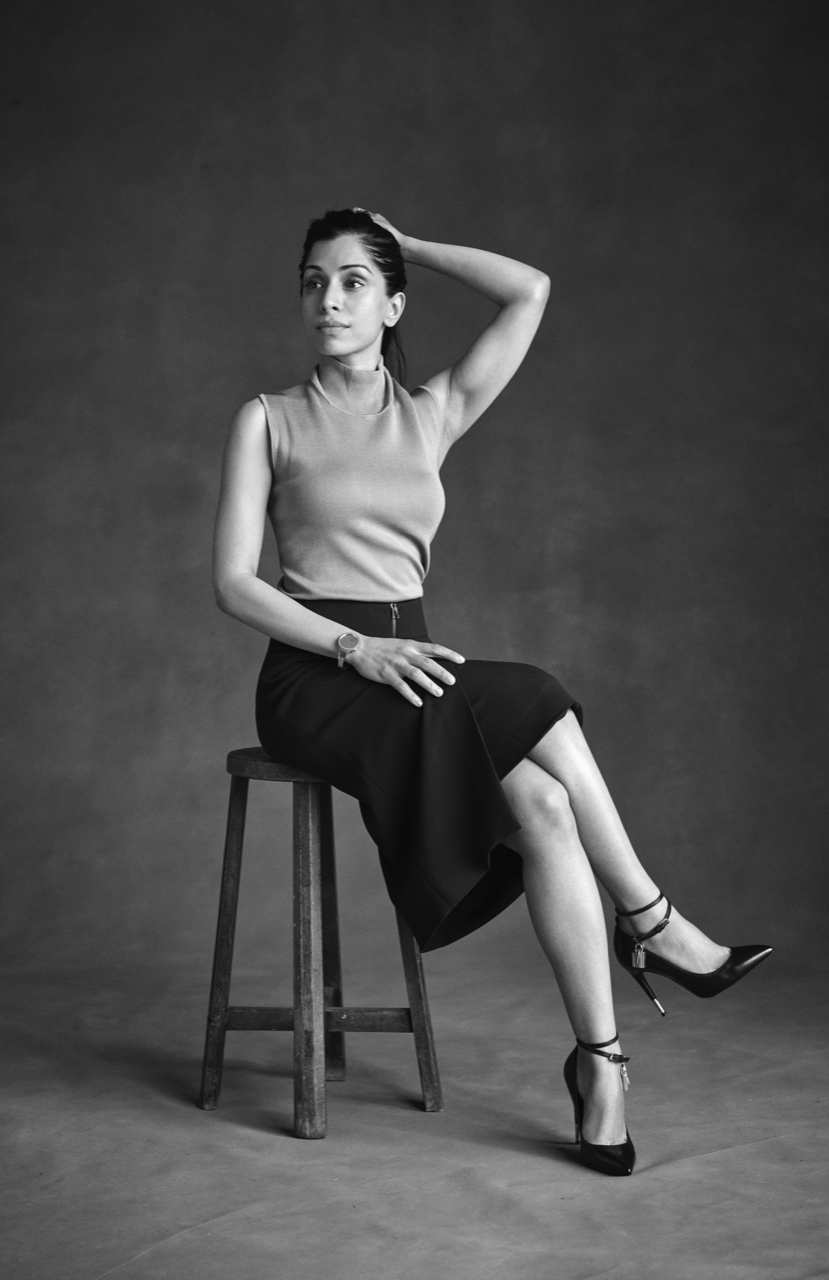
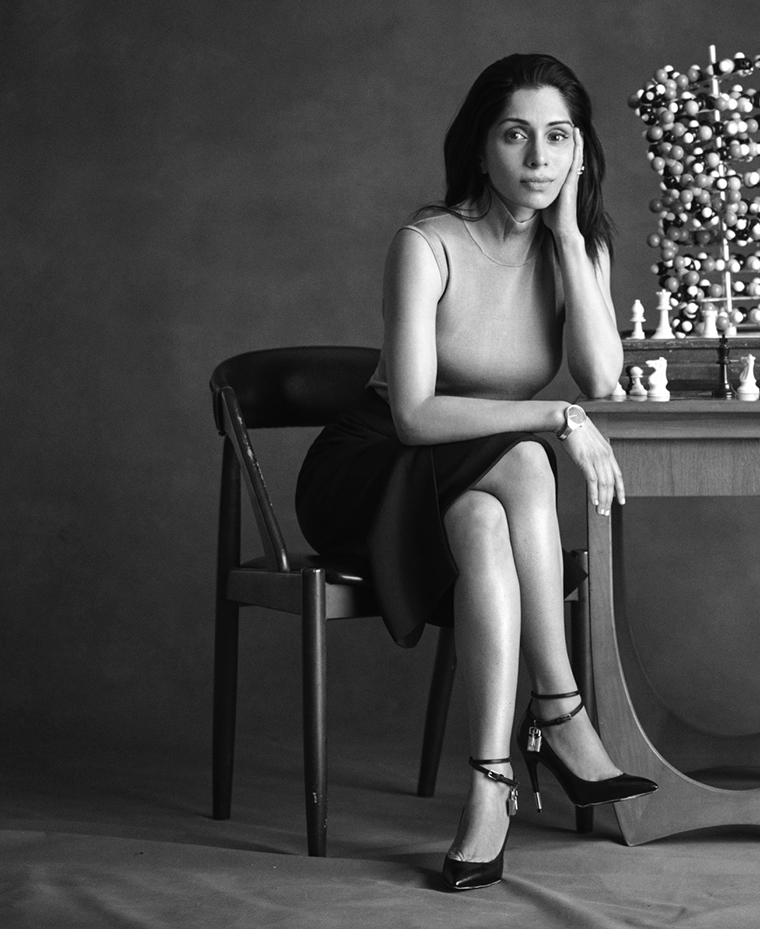
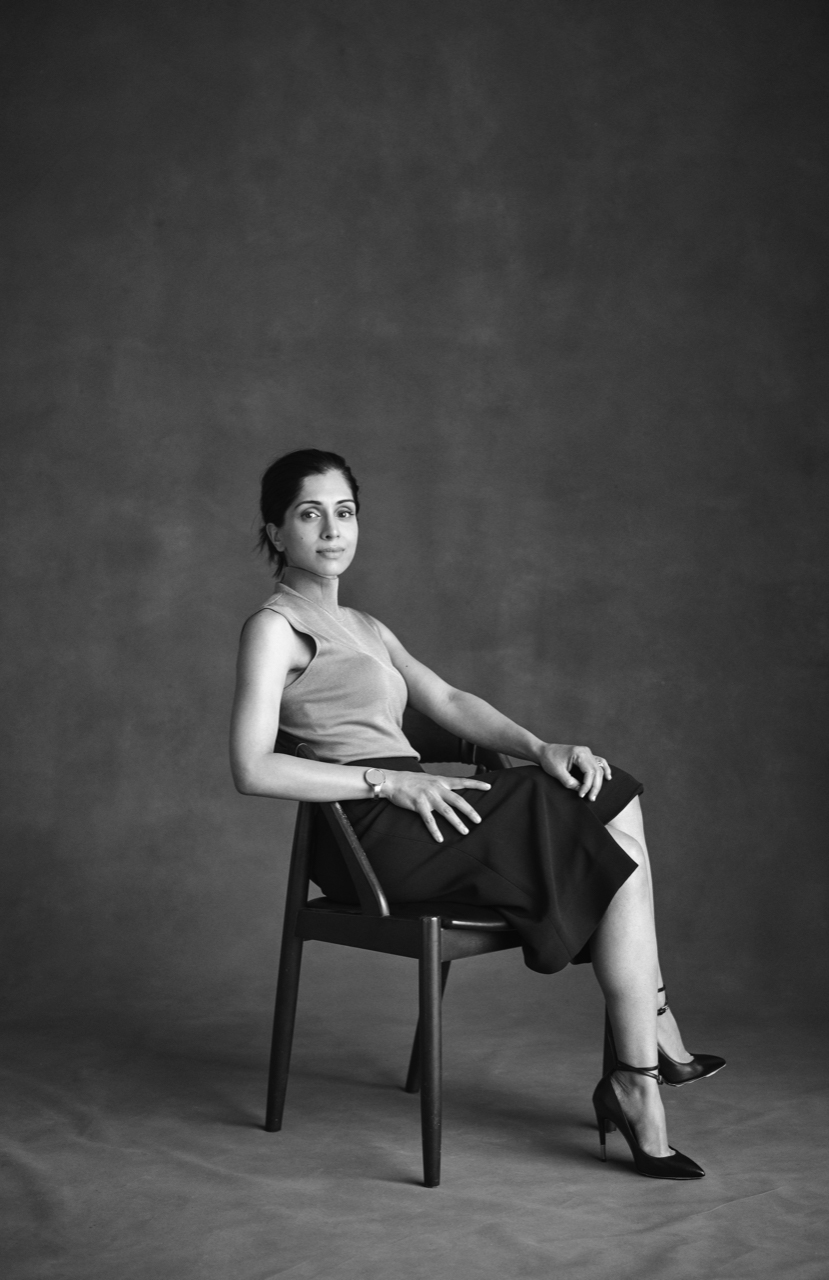
It’s definitely no secret that people come from far and wide to see you. Have you always felt supported in the dermatology industry?
In terms of the work, yes. It was challenging for sure when I first started but we were very well looked after. The only thing I would say is that there was no support for those of us who wanted to have, or those who had, children. Technology hadn’t moved on back then so you would have to attend a ridiculous amount of tutorials – sometimes until nine o’clock at night and there was no other option. My husband and I were married for five years before we had kids and about two of those years were all about study so I kept saying that I wasn’t ready for kids. But I think if I was genuinely honest with myself it was more that I wouldn’t allow myself to want kids because I knew it was impossible to take a year off or do part time – it just wasn’t an option at the time. In a way, wanting to have kids and take time off was incredibly frowned upon. It wasn’t draconian, but it was strongly implied. It’s definitely different now and we strongly advocate for our interns taking time off to have kids or setting up a job share but during my time, this just wasn’t an option.
That would have been quite challenging to feel like you couldn’t start a family when you may have wanted to. You now have two girls – how is it juggling motherhood and your career success?
To be quite honest, it feels like my brain is constantly fried. Even now, I’m doing this interview but in the back of my head I have stored the fact that my daughter’s potty seat is broken and she will only want the Paw Patrol one. Why do I have these facts in my head? I do think, on a serious note, we as women are wired to want to have the best of both worlds but this isn’t possible. Something has always got to give and accepting that is so helpful.
Practically though, I would say that I like to get all my work done and then go home, so home is a work-free zone. I can then spend a quality two or three hours with the girls rather than being home two hours early and plonking them in front of the TV while I finish off my work. I also think having a really understanding partner is key. They need to see themselves as an equal parent – it doesn’t always have to be you. Like any couple, we had our teething problems when the girls were really little but once we were both on the ball, I was able to let go a little and give myself a break. Which, by the way, is key in being a good mum – taking time for you!
That’s some great advice. How do you like to take time for yourself?
To me, there’s nothing a little shopping and a pamper can’t fix. And that can mean different things for different people. I am also a sucker for a Netflix binge. But I’d definitely say my number one is my beauty routine. Finding that time for me, particularly in the evenings, has the power to change my whole day. I love to use a micellar water and then do a luxurious double cleanse. I will then go in with lactic acid and vitamin A to help renew my cells for the next day. My biggest thing is just having healthy, luminous skin so treating myself to a luxurious nighttime skincare routine helps me do that.
We’re glad you brought up beauty because, obviously, we want to know exactly what you use. So, what would you say are the top three beauty products that make your life that little bit easier?
It has to be my all time favourite perfume, Une Rose by Frédéric Malle ($498). It reminds me of Dior Poison which my grandmother and teacher used to wear, so it brings back all sorts of comforting memories. Then definitely my Hourglass Arch Brow Sculpting Pencil ($54) because it immediately makes my face look put together and finally, because it’s so important, my Rationale B3-T Tinted Superfluid SPF50 ($77). I never leave the house without it on my face.
Picture this: it’s 5:15pm on a dreary Tuesday afternoon. Suddenly, a Zoom link pops up and one of the most highly sought after dermatologists in the game appears on the screen. It’s Dr Shyamalar Gunatheesan and she’s glowing.
Just quietly, Dr Gunatheesan looks at least 10 years younger than she actually is – so when this skin expert shares her wisdom with us, we’re listening. Working out of Fairfield Dermatology Clinic in Melbourne, the Malaysia-native is in high demand for a reason: dermatology is more than her nine to five, it’s her passion. Graduating with a Bachelor of Science and a Bachelor of Medicine and Surgery in 2005, Gunatheesan went on to do a year of genetic research at Harvard University. Impressive, right?
Since then, the mother of two has received a handful of prestigious awards – including the Adrian Johnson Memorial prize for the best publication in the Australasian Journal of Dermatology – and is also an Honorary Consultant at the Royal Melbourne Hospital.
Accolades aside, what makes Dr Gunatheesan stand out is her ability to make everyone feel seen and understood in her clinic. It’s a reputation she has built through a combination of empathy and honesty to help her clients achieve their skin goals.
In this interview, Dr Gunatheesan speaks to Gritty Pretty about growing up as an outsider, the thrill of solving a tricky skin situation, why she had to carefully time having children and the female mental load (otherwise known as remembering the fact her daughter only loves the Paw Patrol potty seat).

Thank you so much for speaking with us today Dr Shyamalar! We know you’re one of the best dermatologists in the country, but we want to know a bit more about your early life. Where did you grow up?
I grew up in Malaysia in a little border town called Johor Bahru which flanked Malaysia and Singapore. It wasn’t as rich as Singapore but it was the same demographic of people; a migrant community of Ethnic Malays, Chinese, Indians and Sri Lankans. But since I grew up so close to Singapore, I actually went to school there for all my life. It was a 30 minute bus ride across the causeway with the pineapples and pigs being trucked alongside me. So, in a way I’ve been an outsider for as long as I can remember.
That would have been quite challenging to feel like you didn’t necessarily belong in either place. You then moved to Melbourne to study medicine, how did you feel about that transition?
For one, when I came to Melbourne I was gobsmacked that I could literally crawl into a lecture in five minutes from my dorm. That was a luxury. But it was also just such a natural move for me because most people in Asia think of either Australia or the UK as good universities to study medicine so I was always kind of prepared for it. I also travelled a lot with my parents so I was used to meeting new people and living in new places so it was quite an easy transition, to be honest.
Once you’d completed your studies at the University of Melbourne you made the transition into being a practicing dermatologist. What would you say was the most challenging part?
Medicine is an apprenticeship, you learn by mimicking. So, despite having all the medical knowledge and studying really hard, nothing really prepares you for your first year out. You’re definitely thrown into the deep end. I think the biggest challenge was drawing on my emotional side more than I thought I would have to – you think it’s going to be all clinical but for something as personal as skin, being empathetic and understanding is so important. You just have to be interested, like really interested, and invested in your patients. That’s not to say you have to be a good samaritan because sometimes it is about telling someone what they don’t want to hear, especially when it comes to making lifestyle changes, but you do need to be considerate and speak to them in terms that they’re going to understand. There’s no point prescribing something to someone in a way they don’t understand because they won’t do it.
That’s great advice for everyone – dermatologist or not. On top of being empathetic, why do you think so many people trust you with their skin?
There’s a saying that it takes anyone about eight years to be a good dermatologist. This is because you learn all the different patterns and conditions and you get more confident in diagnosing it. I think people trust me because I genuinely care about how their skin affects everything in their lives. It goes beyond having a breakout or a rash – it affects people’s whole sense of self and confidence. So, helping people overcome the mental challenges by helping them fix their skin is what I think has helped me build my reputation.
I also think being a woman helps because I understand where female skin concerns are coming from – more often than not, I have those same concerns myself. So just relating to my clients on that personal level has set me apart. And I will never give up. It could take us two or three tries to get it right but I will always get that result.

It’s definitely no secret that people come from far and wide to see you. Have you always felt supported in the dermatology industry?
In terms of the work, yes. It was challenging for sure when I first started but we were very well looked after. The only thing I would say is that there was no support for those of us who wanted to have, or those who had, children. Technology hadn’t moved on back then so you would have to attend a ridiculous amount of tutorials – sometimes until nine o’clock at night and there was no other option. My husband and I were married for five years before we had kids and about two of those years were all about study so I kept saying that I wasn’t ready for kids. But I think if I was genuinely honest with myself it was more that I wouldn’t allow myself to want kids because I knew it was impossible to take a year off or do part time – it just wasn’t an option at the time. In a way, wanting to have kids and take time off was incredibly frowned upon. It wasn’t draconian, but it was strongly implied. It’s definitely different now and we strongly advocate for our interns taking time off to have kids or setting up a job share but during my time, this just wasn’t an option.
That would have been quite challenging to feel like you couldn’t start a family when you may have wanted to. You now have two girls – how is it juggling motherhood and your career success?
To be quite honest, it feels like my brain is constantly fried. Even now, I’m doing this interview but in the back of my head I have stored the fact that my daughter’s potty seat is broken and she will only want the Paw Patrol one. Why do I have these facts in my head? I do think, on a serious note, we as women are wired to want to have the best of both worlds but this isn’t possible. Something has always got to give and accepting that is so helpful.
Practically though, I would say that I like to get all my work done and then go home, so home is a work-free zone. I can then spend a quality two or three hours with the girls rather than being home two hours early and plonking them in front of the TV while I finish off my work. I also think having a really understanding partner is key. They need to see themselves as an equal parent – it doesn’t always have to be you. Like any couple, we had our teething problems when the girls were really little but once we were both on the ball, I was able to let go a little and give myself a break. Which, by the way, is key in being a good mum – taking time for you!
That’s some great advice. How do you like to take time for yourself?
To me, there’s nothing a little shopping and a pamper can’t fix. And that can mean different things for different people. I am also a sucker for a Netflix binge. But I’d definitely say my number one is my beauty routine. Finding that time for me, particularly in the evenings, has the power to change my whole day. I love to use a micellar water and then do a luxurious double cleanse. I will then go in with lactic acid and vitamin A to help renew my cells for the next day. My biggest thing is just having healthy, luminous skin so treating myself to a luxurious nighttime skincare routine helps me do that.
We’re glad you brought up beauty because, obviously, we want to know exactly what you use. So, what would you say are the top three beauty products that make your life that little bit easier?
It has to be my all time favourite perfume, Une Rose by Frédéric Malle ($498). It reminds me of Dior Poison which my grandmother and teacher used to wear, so it brings back all sorts of comforting memories. Then definitely my Hourglass Arch Brow Sculpting Pencil ($54) because it immediately makes my face look put together and finally, because it’s so important, my Rationale B3-T Tinted Superfluid SPF50 ($77). I never leave the house without it on my face.


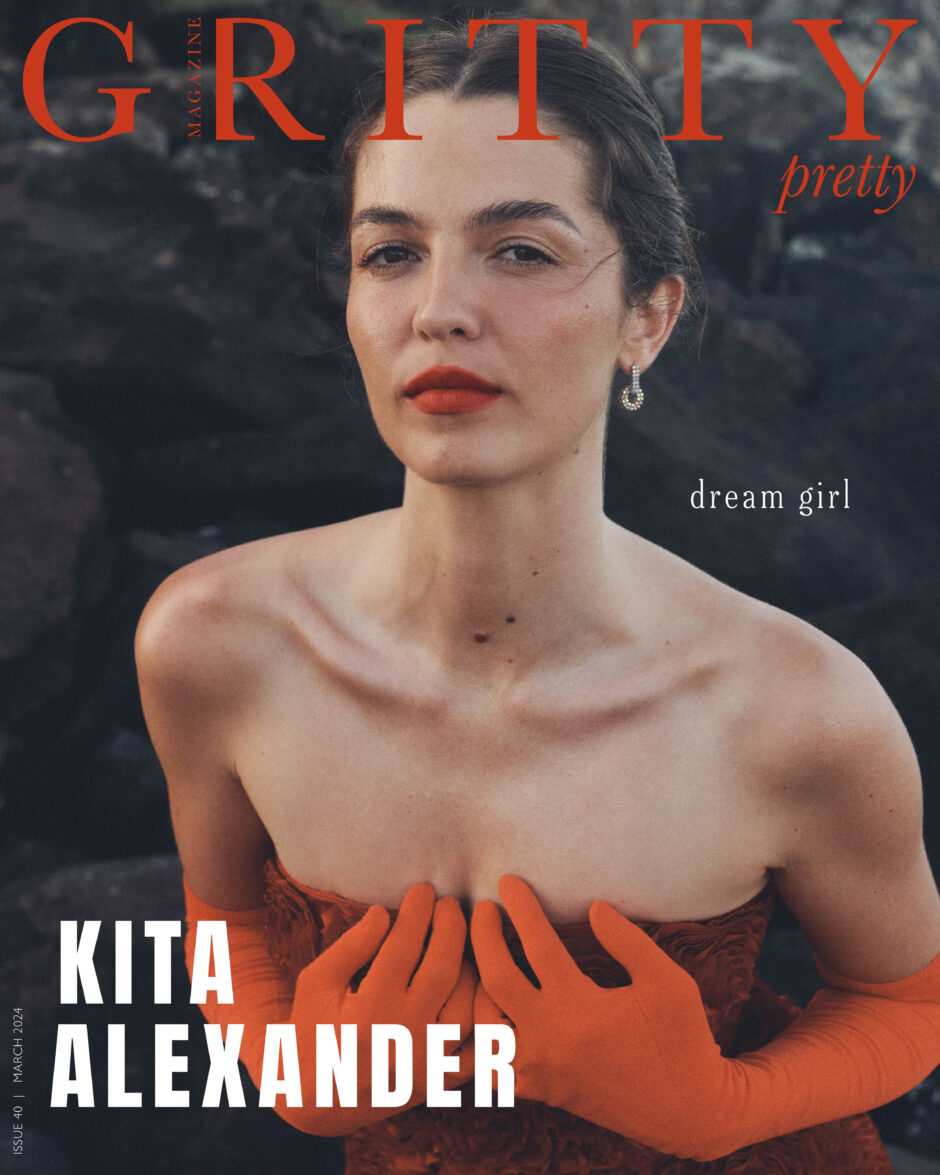
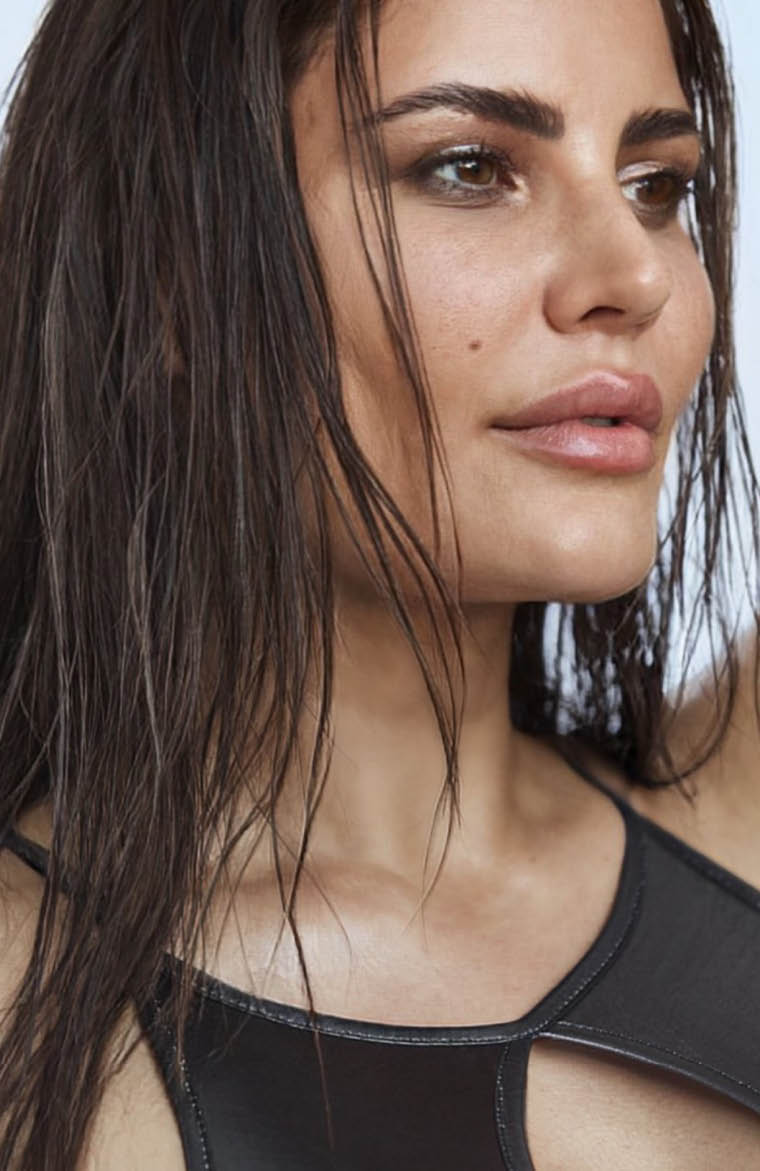
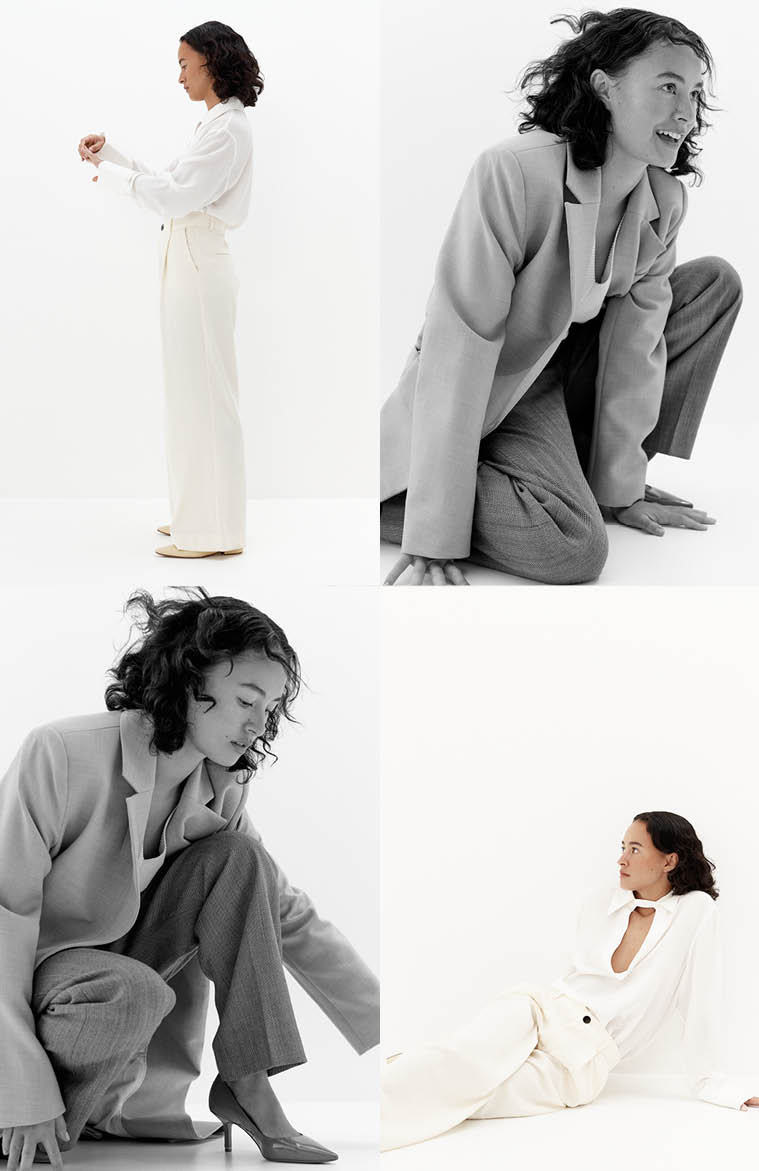
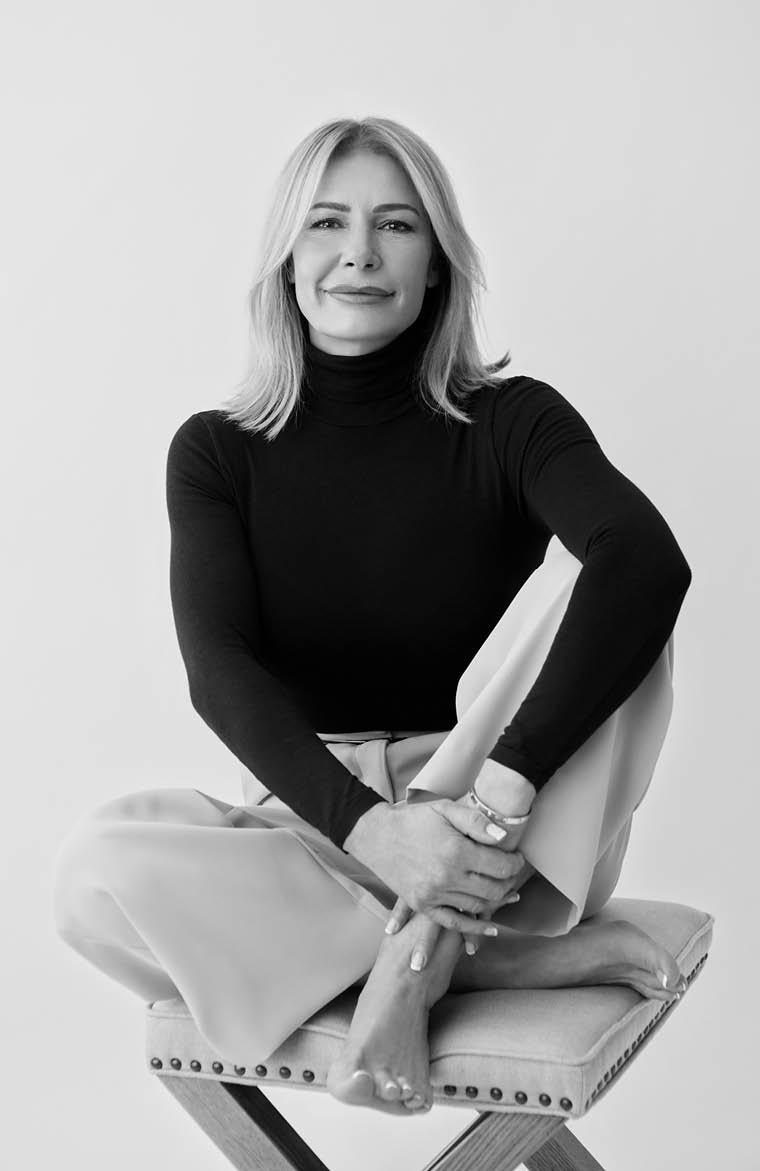
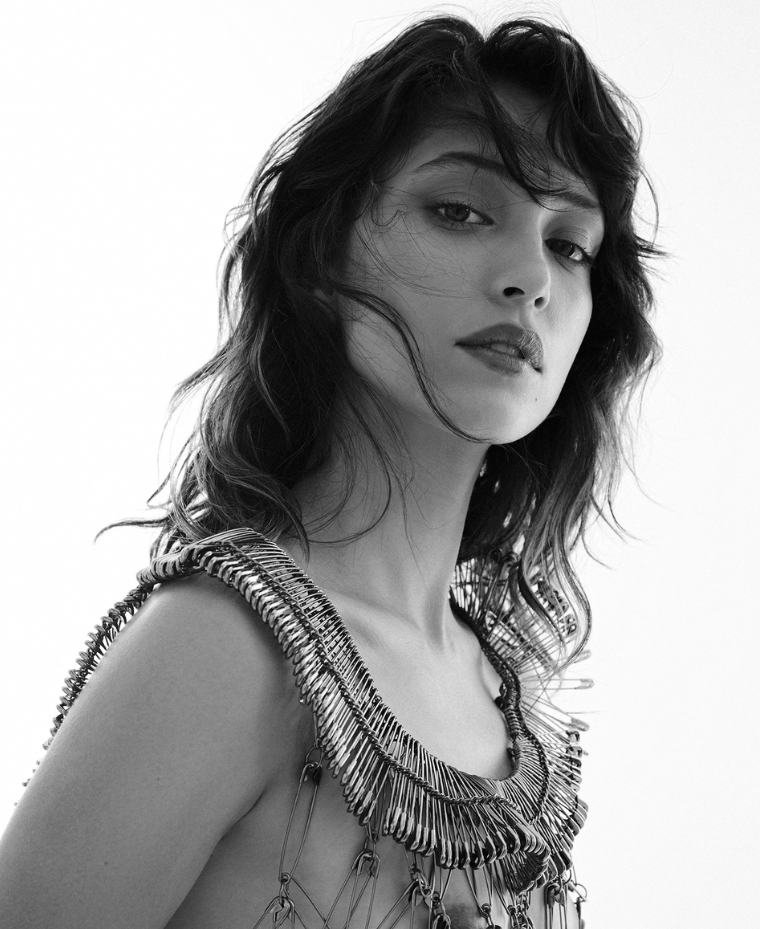
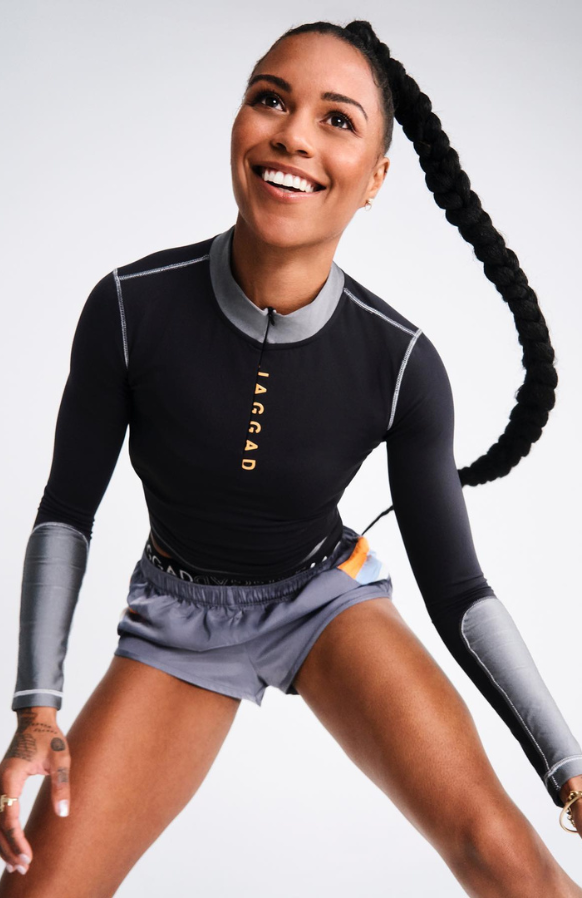

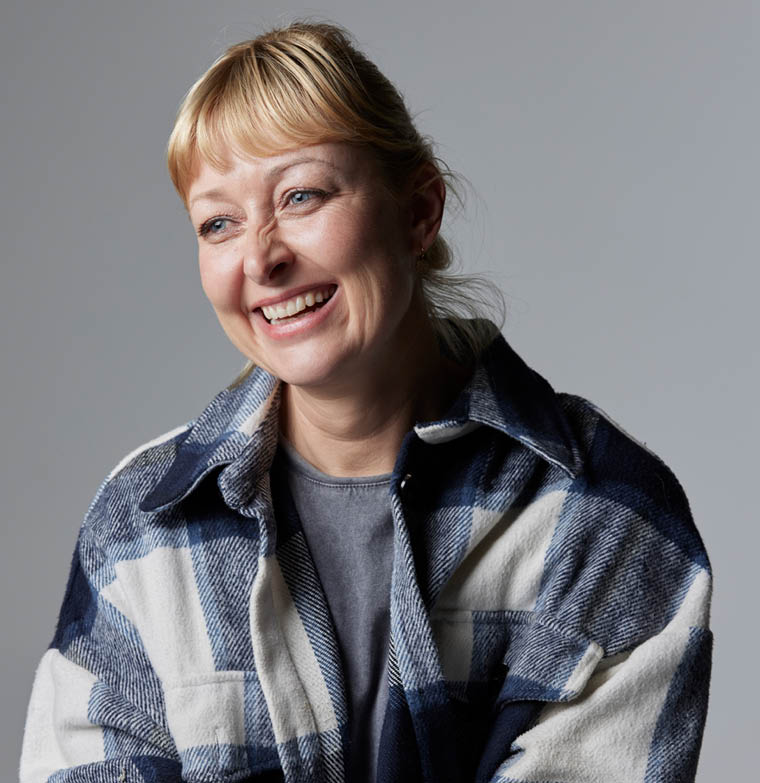
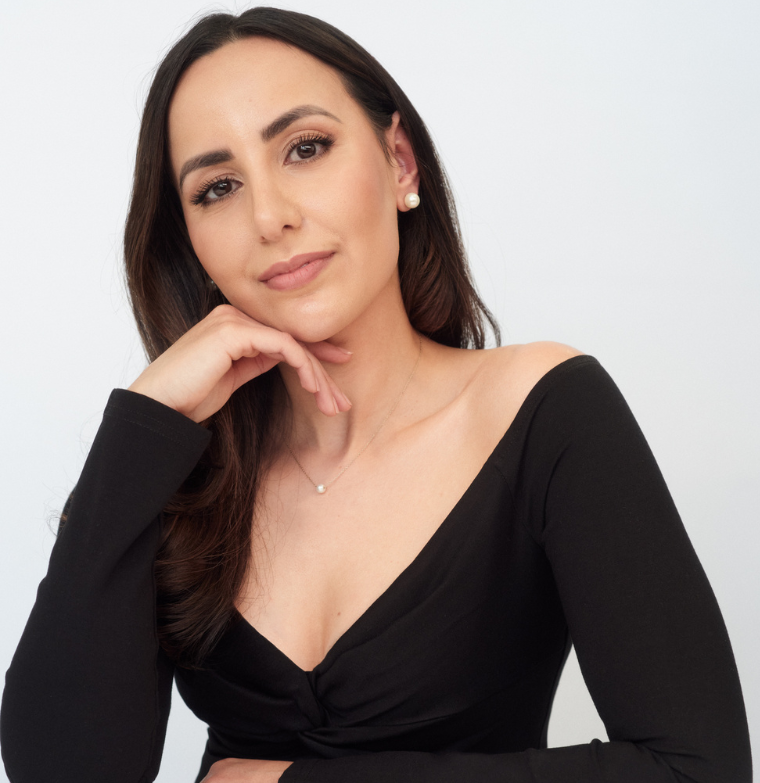
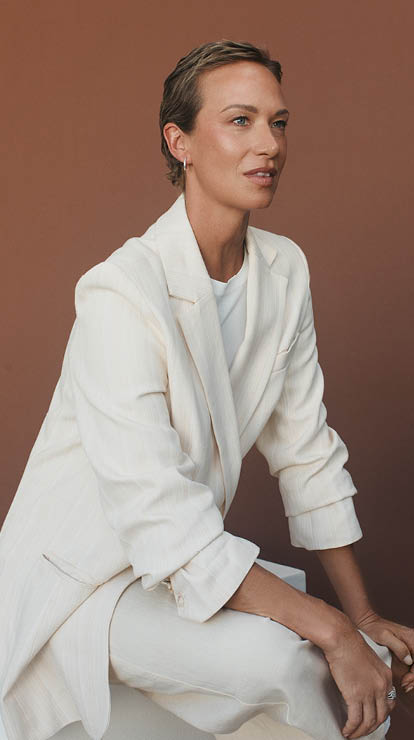

Comments